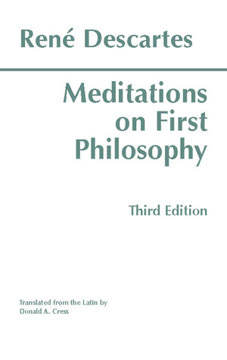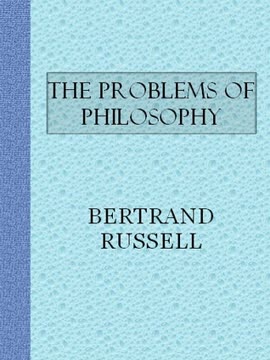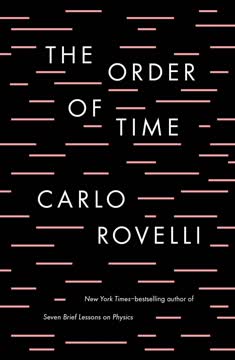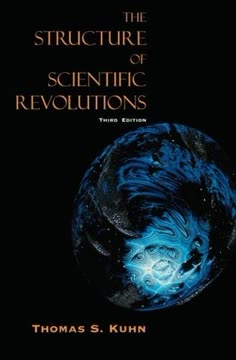Key Takeaways
1. The "Official Doctrine" is a Category Mistake
It represents the facts of mental life as if they belonged to one logical type or category (or range of types or categories), when they actually belong to another.
The core error. Ryle argues that the dominant view of the mind, stemming largely from Descartes and dubbed the "Official Doctrine" or "Ghost in the Machine," is fundamentally flawed. It treats the mind and body as two distinct substances or realms – one physical and public, the other mental and private – that somehow interact. This is a "category mistake."
Illustrative examples. A category mistake occurs when one understands individual parts but mistakenly assumes the whole belongs to the same category as the parts.
- Seeing colleges, libraries, and departments, then asking "But where is the University?"
- Seeing battalions, batteries, and squadrons, then asking "But when is the division going to appear?"
- Seeing bowlers, batsmen, and fielders, then asking "But who contributes the team-spirit?"
Misrepresenting mental life. The Official Doctrine makes a similar error by placing mental concepts (like knowing, believing, wanting) in the wrong logical category. It assumes they refer to hidden, private events or processes analogous to physical events, rather than describing the ways people behave publicly and privately. This leads to insoluble problems like mind-body interaction and how we know other minds exist.
2. Knowing-How is Distinct from Knowing-That
Intelligent practice is not a step-child of theory.
Skill isn't just theory. Ryle challenges the "intellectualist legend" which claims that intelligent actions are caused by prior intellectual acts of considering rules or propositions ("knowing that"). He argues that "knowing how" (skill, competence) is a distinct kind of knowledge, not reducible to or derived from "knowing that" (propositional knowledge).
The regress argument. If every intelligent action required a prior intellectual act, that intellectual act would itself need to be performed intelligently, requiring another prior intellectual act, leading to an infinite regress.
- To act intelligently, I must first consider a rule intelligently.
- To consider the rule intelligently, I must first consider a rule about considering rules intelligently.
- And so on...
Procedure, not parentage. What makes an action intelligent is not a hidden mental cause, but the manner or procedure of the action itself. An intelligent performance is one where the agent applies criteria, corrects lapses, and learns from experience, whether or not they can articulate the rules they follow. Knowing how to do something is a disposition, a capacity exercised in performance, not a secret theoretical operation.
3. The Myth of Volitions and the Will
The doctrine of volitions is a causal hypothesis, adopted because it was wrongly supposed that the question, ‘What makes a bodily movement voluntary?’ was a causal question.
Postulated inner acts. The traditional concept of "the Will" and "volitions" is another target. Volitions were conceived as special mental acts or thrusts that translate intentions into bodily movements, serving as the hidden causes of voluntary actions. Ryle argues this is a philosophical invention, not something found in ordinary experience.
Lack of empirical basis. Nobody, outside of philosophical theory, describes their actions as resulting from volitions. We don't report performing volitions, nor do judges or parents require evidence of volitions to assess responsibility.
- Can volitions be sudden or gradual?
- Can they be strong or weak?
- Can we take lessons in executing them?
- How many volitions are performed while reciting a poem?
The mystery of interaction. Even if volitions existed, the theory provides no coherent explanation of how these non-physical acts could cause physical movements. The connection is admitted to be a mystery, highlighting the flawed premise of two separate causal realms. The concept of volition was created to solve a problem ("What causes voluntary action?") that arose only from the initial category mistake.
4. Emotions are Diverse, Not Just Inner Feelings
I shall argue that the word ‘emotion’ is used to designate at least three or four different kinds of things, which I shall call ‘inclinations’ (or ‘motives’), ‘moods’, ‘agitations’ (or ‘commotions’) and ‘feelings’.
Beyond simple feelings. Ryle argues against treating all "emotions" as occurrences of private, inner feelings or turbulences. The word "emotion" covers several distinct types of concepts, only one of which refers to feelings in a strict sense.
Types of "emotions":
- Inclinations (Motives): Dispositional traits like vanity, patriotism, kindness. These are tendencies to behave in certain ways, not specific occurrences or feelings. Explaining an action by motive is like explaining glass breaking by its brittleness (law-like), not by a stone hitting it (causal).
- Moods: Temporary states like depression, happiness, sulkiness. These are liabilities to act and feel in a range of ways, not single occurrences or feelings. Being in a mood colors many actions and reactions.
- Agitations (Commotions): Disturbances like anxiety, excitement, panic. These are often results of conflicting inclinations or thwarted purposes, characterized by aimless behavior or paralysis, not purposeful action.
- Feelings: Specific sensations like twinges, pangs, thrills. These are occurrences, often associated with agitations, but are not themselves motives or moods. A "glow of pride" is a feeling diagnosed as a sign of the mood of pride, not the pride itself.
Not occult causes. None of these types of "emotions" are hidden, private causes of behavior. Inclinations are behavior trends, moods are temporary liabilities, agitations are disturbances, and feelings are sensations often symptomatic of agitations. Our knowledge of others' emotions comes from observing their behavior, talk, and demeanor, not from inferring hidden inner events.
5. Understanding Dispositions and Occurrences
Dispositional statements are neither reports of observed or observable states of affairs, nor yet reports of unobserved or unobservable states of affairs.
Beyond simple facts. Many words describing people signify dispositions (capacities, tendencies, liabilities) rather than specific episodes or occurrences. To say someone "knows French" or is "brittle" is not to report something they are doing or undergoing now, but what they would do or undergo under certain conditions.
Not hidden episodes. Dispositional statements are often misinterpreted as referring to hidden, unobservable episodes (e.g., "knowing French" means having a secret mental process of "French-knowing" going on). Ryle argues they are more like "inference-tickets" or "law-like propositions" that license predictions and explanations of actual occurrences.
- "Sugar is soluble" licenses the inference: If put in water, it will dissolve.
- "John Doe knows French" licenses inferences: If addressed in French, he will respond appropriately; if shown a French newspaper, he will understand it.
Mongrel categoricals. Some statements blend episodic and dispositional aspects, like "the bird is migrating" or "he did it carefully." These describe an occurrence in terms that are "law-impregnated," implying readiness for other related occurrences without reporting extra, hidden processes. Understanding these logical nuances is key to avoiding the temptation to invent occult mental events.
6. Self-Knowledge Without Privileged Access
To drop the hope of Privileged Access is also to drop the fear of epistemological isolationism; we lose the bitters with the sweets of Solipsism.
The myth of inner sight. The Official Doctrine claims we have special, infallible access to our own minds through "consciousness" (constant awareness) and "introspection" (inner perception). Ryle rejects this, arguing these concepts are based on the flawed idea of the mind as a private theatre.
No special faculty. "Consciousness" and "introspection" as described by theorists are logical muddles.
- "Consciousness" as self-intimation leads to an infinite regress (conscious of being conscious of...).
- "Introspection" as inner perception requires attending twice at once and fails to explain how we recognize or make sense of inner states. It also fails to account for misrecognition or self-deception.
Knowing oneself like knowing others. Our knowledge of our own minds is not fundamentally different in kind from our knowledge of others' minds. We learn about ourselves by observing our own behavior, talk (especially unstudied talk), and reactions, much as we observe others.
- We notice our own habits, tendencies, and skills.
- We interpret our own words and actions.
- We compare our performances and reactions to those of others.
Systematic elusiveness. The feeling that the "I" is elusive comes from the fact that any act of self-description or self-criticism is a higher-order act that cannot simultaneously be the object of itself. This logical feature, not a hidden substance, explains the apparent non-parallelism between "I" and "you."
7. Sensation is Not Observation
Having a sensation is not an exercise of a quality of intellect or character.
Distinct concepts. Ryle distinguishes sharply between having a sensation (like a tickle or a dazzle) and observing something (like a robin or a haystack). The Sense Datum Theory mistakenly assimilates these, claiming that having a sensation is observing a special kind of object ("sense data").
Logical differences.
- Observation is a task (watching, scanning) or an achievement (seeing, detecting); sensation is neither.
- Observation can be careful or careless, successful or unavailing; sensation cannot.
- Observation can be done from a motive; sensation cannot.
- Observation entails having sensations; having sensations does not entail observing.
No "sensible objects". The notion of "sense data" or "sensible objects" is a philosophical invention stemming from the category mistake. Sensations are not objects that are observed, even privately. It makes no sense to speak of observing a tickle or a glimpse.
- "A glimpse of a glimpse" is nonsensical.
- Sensations have no size, shape, or location in space in the way objects do.
Describing sensations. We describe sensations not in a "neat" sensation vocabulary, but by reference to how common objects look, sound, or feel (e.g., a "stabbing pain" is like the pain from a stab). This shows our understanding of sensation is tied to our understanding of the public world, not a private realm of sense data.
8. Imagination is Not Seeing Mental Pictures
Roughly, imaging occurs, but images are not seen.
Beyond the "mind's eye". Ryle argues against the common idea that imagining involves seeing or hearing special, non-physical objects ("mental pictures," "auditory images") in a private mental space. This is another instance of the category mistake, treating "seeing in the mind's eye" as a kind of seeing.
Not seeing likenesses. Imagining is not seeing a picture or hearing a recording of something.
- A mock-murder is not a murder.
- An imagined shriek is not a sound (loud or faint).
- Imagining a smell is not smelling a copy of a smell.
Seeming to perceive. Imaging is better understood as seeming or fancying that one perceives something, when one is not actually perceiving it. This is a form of make-believe or pretending.
- Picturing Helvellyn is fancying that one sees Helvellyn.
- Having a tune in one's head is fancying that one hears the tune.
Sophisticated performance. Imaging is a sophisticated performance, a way of utilizing knowledge of how things look, sound, etc. It requires learning and is compatible with not having the corresponding sensations. The vividness of an image is not a measure of its intensity as a sensation, but of how lifelike the seeming is.
9. Intellectual Terms Describe Products, Not Occult Acts
I hope to show that the words ‘judgment’, ‘deduction’, ‘abstraction’ and the rest belong properly to the classification of the products of pondering and are mis-rendered when taken as denoting acts of which pondering consists.
Misapplying terms. Epistemological terms like "judgment," "inference," "conception," and "abstraction" are often mistakenly used to denote hidden, specific mental acts or processes that supposedly occur during thinking. Ryle argues these terms primarily describe the products or elements of achieved theories and arguments, not the acts of thinking them out.
Products vs. processes.
- A treatise contains arguments and conclusions (products).
- Thinking involves wrestling, exploring, questioning, and drafting (processes).
Not hidden operations. When a scientist publishes a theory, it contains judgments and inferences. This does not mean that while he was discovering the theory, he was performing discrete, hidden acts of "judging" and "inferring" corresponding to each sentence. These terms describe the logical structure of the finished theory, or the didactic act of presenting it, not the messy process of creating it.
Thinking as skilled performance. Thinking is a form of skilled performance, like tying knots or playing chess. It involves applying methods, correcting errors, and working towards a goal. While it may involve internal or external talk, calculation, or visualization, these are parts of the process, not separate "cognitive acts" that cause the thinking. The mastery of argument comes through practice, not through performing hidden "inference-acts."
Last updated:
FAQ
What is The Concept of Mind by Gilbert Ryle about?
- Critique of Cartesian Dualism: Ryle’s book is a sustained critique of the traditional mind-body dualism, especially Descartes’ view of the mind as a separate, ghostly entity inside the body.
- Category Mistake Argument: Ryle argues that treating the mind as a thing or substance is a “category mistake,” misclassifying mental concepts as if they were physical objects.
- Focus on Mental Concepts: The book analyzes how we talk about mental phenomena—such as will, emotion, sensation, and knowledge—showing that many philosophical puzzles arise from misusing language.
- Philosophy as Clarification: Rather than offering new empirical findings, Ryle aims to dissolve philosophical confusions by clarifying the logical geography of mental concepts.
Why should I read The Concept of Mind by Gilbert Ryle?
- Foundational Work in Philosophy: The book is a classic in analytic philosophy and philosophy of mind, challenging deeply rooted assumptions about mind and behavior.
- Clarifies Mental Language: Ryle’s analysis helps readers avoid common philosophical errors, such as category mistakes and the “ghost in the machine” myth.
- Influence on Cognitive Science: The book’s insights remain relevant to debates about consciousness, mental causation, and the mind-body problem in contemporary philosophy and cognitive science.
- Accessible and Erudite: Despite its philosophical depth, Ryle’s writing is clear and engaging, making complex ideas approachable for a wide audience.
What are the key takeaways from The Concept of Mind by Gilbert Ryle?
- Mental Concepts as Dispositions: Many mental terms (like belief, motive, and knowledge) describe tendencies or dispositions to behave, not hidden inner episodes.
- Category Mistake Critique: The mind-body problem is rooted in a logical error—treating mental phenomena as if they were physical things.
- Behavior and Language Focus: Understanding mind requires analyzing how we use mental language in everyday life, not positing mysterious inner processes.
- Rejection of Privileged Access: Self-knowledge is not a matter of infallible inner observation but is similar to knowing others—through behavior and language.
What are the best quotes from The Concept of Mind by Gilbert Ryle and what do they mean?
- “The dogma of the Ghost in the Machine.” Ryle’s famous phrase for the Cartesian view, highlighting its absurdity and influence.
- “A category mistake is the error of assigning to something a property which can only sensibly be ascribed to things of a different category.” This defines his central philosophical tool for dissolving confusions.
- “To explain an action as done from a motive is not to describe an episode, but to subsume it under a law-like tendency.” This clarifies that motives are not inner causes but patterns in behavior.
- “Knowing how is not reducible to knowing that.” Ryle’s distinction between practical skill and propositional knowledge, challenging intellectualist assumptions.
What is the “category mistake” in The Concept of Mind by Gilbert Ryle?
- Definition of Category Mistake: A category mistake occurs when concepts are assigned to the wrong logical type, such as treating the mind as a physical object.
- Examples Provided: Ryle uses analogies like asking “Where is the University?” after seeing the colleges, or treating “team spirit” as a player, to illustrate the error.
- Central to Mind-Body Problem: The mind-body dualism is a category mistake, leading to philosophical puzzles like the “ghost in the machine.”
- Philosophical Method: Identifying and correcting category mistakes is key to dissolving many traditional philosophical problems.
How does The Concept of Mind by Gilbert Ryle critique Cartesian dualism and the “ghost in the machine” doctrine?
- Mind-Body Dualism Critiqued: Ryle argues that Descartes’ view of mind and body as separate substances is a logical error, not a scientific hypothesis.
- Private Mental Realm Rejected: The idea that mental processes are private, inner episodes accessible only to the subject is challenged as incoherent.
- Interaction Problem Exposed: Ryle shows that positing mental events as causes of bodily movements leads to unsolvable problems about mental causation.
- Alternative View Offered: He proposes that mental concepts are best understood as ways of talking about behavior and dispositions, not as references to hidden entities.
What is the distinction between “knowing how” and “knowing that” in The Concept of Mind by Gilbert Ryle?
- Knowing How Defined: “Knowing how” refers to practical abilities or skills, such as riding a bike or playing chess, which are dispositional.
- Knowing That Defined: “Knowing that” is propositional knowledge—facts or truths that can be stated, like “Paris is the capital of France.”
- Intellectualist Legend Critiqued: Ryle argues against the view that all intelligent action is based on prior theoretical knowledge, showing this leads to infinite regress.
- Practical Intelligence Emphasized: Skills can be exercised without explicit rule-following or conscious theoretical consideration.
How does The Concept of Mind by Gilbert Ryle explain intelligence and intelligent behavior?
- Intelligence as Skillful Performance: Intelligence is shown in how actions are performed, applying standards and criteria, not in hidden mental acts.
- Dispositions vs. Habits: Intelligent capacities are complex dispositions, involving readiness to detect and correct errors, not just automatic habits.
- No Need for Covert Rules: Ryle rejects the idea that intelligent behavior requires internal acts of rule-following or planning.
- Shared Competence: Understanding others’ intelligence is a matter of recognizing shared skills and criteria, not inferring hidden mental states.
How does The Concept of Mind by Gilbert Ryle analyze motives, emotions, moods, and feelings?
- Motives as Dispositions: Motives like vanity or interest are tendencies to behave in certain ways, not momentary feelings or impulses.
- Emotions Have Multiple Senses: Ryle distinguishes between emotions as motives (inclinations), agitations (temporary states), and feelings (bodily sensations).
- Moods as Short-Term Tendencies: Moods color a person’s actions over a period but are not single feelings or episodes.
- Feelings Not Causes: Feelings like pangs or thrills are signs of agitations, not the direct causes of actions.
What is Ryle’s view on self-knowledge and the problem of other minds in The Concept of Mind?
- No Privileged Inner Access: Ryle denies that self-knowledge depends on infallible introspection of private mental episodes.
- Self-Knowledge as Ordinary Practice: Knowing oneself involves the same kinds of observation and interpretation as knowing others, relying on behavior and language.
- Problem of Other Minds Dissolved: Since mental concepts apply to observable behavior, understanding others’ minds is not a matter of inferring hidden states.
- Private Language Problem Avoided: Ryle rejects the idea that mental language is necessarily private and untranslatable.
How does The Concept of Mind by Gilbert Ryle distinguish between sensation and observation, and what is his critique of the Sense Datum Theory?
- Sensation vs. Observation: Sensations (like pain or tickle) are not objects of observation; having a sensation is not the same as observing something.
- Critique of Sense Data: Ryle argues that positing private sense data as objects of perception leads to infinite regress and logical confusion.
- Sensation as Having, Not Observing: Sensations are private in that only the subject has them, but they are not observed or scrutinized, even by oneself.
- Perceptual Experience Reinterpreted: Ryle suggests that perception is better understood in terms of common objects and public language, not private mental entities.
What is Ryle’s analysis of imagination, intellectual operations, and the role of dispositions in The Concept of Mind?
- Imagination as Make-Believe: Imagining is not seeing mental pictures but is a form of make-believe or fancying, using knowledge without involving sensations.
- Intellectual Operations as Dispositions: Thinking, judging, and inferring are not discrete inner acts but exercises of learned competences and dispositions.
- Dispositional Analysis of Mind: Many mental states are best understood as dispositions to behave in certain ways, avoiding the category mistake of treating them as inner episodes.
- Habits vs. Intelligent Performance: Habits are unthinking dispositions, while intelligent performances involve the exercise of mental capacities and are more complex.
Review Summary
The Concept of Mind is a seminal work in philosophy that challenges Cartesian dualism and the notion of mind as a separate entity from the body. While praised for its analytical approach and witty writing, some reviewers found it repetitive and outdated. Ryle's arguments against the "ghost in the machine" theory and his emphasis on dispositions and behavior are seen as influential, though his linguistic analysis and behaviorist leanings have been criticized. The book's impact on philosophy of mind is acknowledged, but its relevance in light of modern neuroscience is questioned.
Similar Books










Download PDF
Download EPUB
.epub digital book format is ideal for reading ebooks on phones, tablets, and e-readers.




